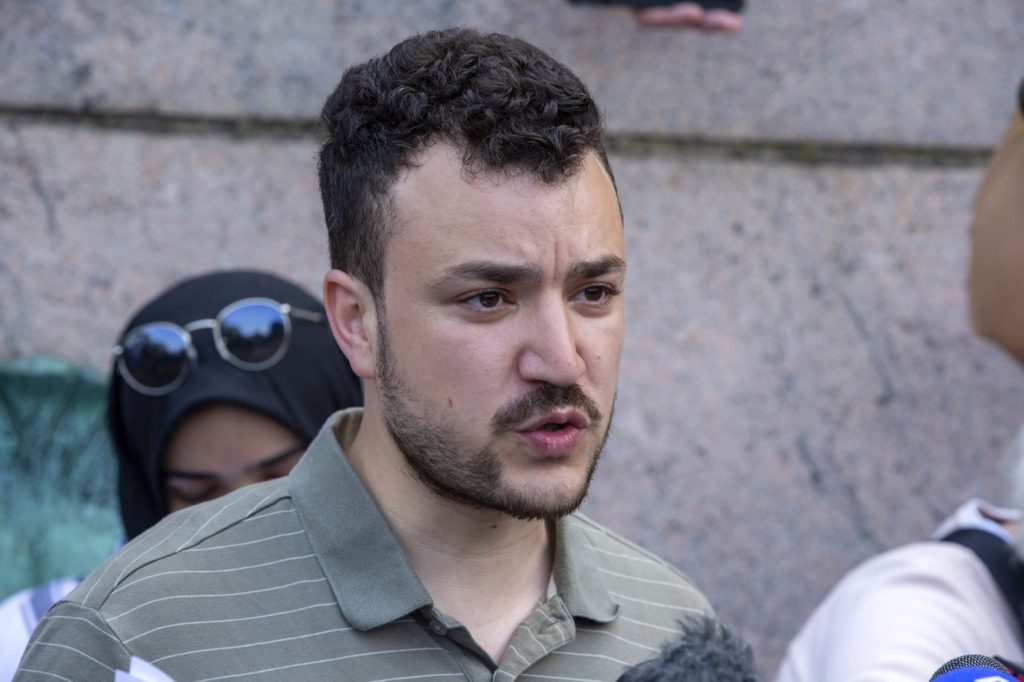NEWARK, N.J. (AP) – Lawyers representing Mahmoud Khalil, a 30-year-old student at Columbia University, are scheduled to appear before a New Jersey judge on Friday as they advocate for his release from federal custody. Khalil, who has become the focus of a deportation effort by the Trump administration due to his involvement in campus protests against Israel, was arrested on March 8 at his university-owned apartment in New York City.
Following his arrest, Khalil was transported to an immigration detention center in Louisiana, where he remains. The Trump administration has invoked a rarely used statute that allows the Secretary of State to deport noncitizens if their presence is deemed threatening to U.S. foreign-policy interests. Although Khalil was born in Syria, he is a legal U.S. resident and is married to an American citizen.
This legal battle marks a continuation of the initial proceedings that took place in New York City, which were subsequently moved to New Jersey after a judge determined that jurisdiction lay there. One of the first matters for the new judge to address is whether to retain the case or potentially transfer it to Louisiana, as requested by the Trump administration.
Khalil had been serving as a negotiator for pro-Palestinian students at Columbia, representing them in discussions with university officials about a campus encampment protesting against the school’s policies regarding Israel. The situation escalated to a point where the university called the police to dismantle the encampment, and certain protesters occupied an administration building. It is important to note that Khalil himself was not arrested during these protests, and he has not faced any criminal charges.
The Trump administration has cited Khalil's significant role in the protests as a reason for his deportation, alleging that his actions amounted to antisemitic support for Hamas, the militant organization that governs Gaza. Participants in the student-led protests have strongly denied that their criticisms of Israel or their support for Palestinian territorial claims constitute antisemitism.
In addition to the protests, U.S. officials have claimed that Khalil failed to disclose specific aspects of his work history on his immigration paperwork, which purportedly includes positions at a British embassy and an internship with the United Nations Relief and Works Agency for Palestine Refugees in the Near East (UNRWA).
Khalil is not alone in facing immigration repercussions related to involvement in pro-Palestinian demonstrations. Other students and faculty members from various universities across the country have experienced similar fates, including arrests, visa revocations, or bans from entering the U.S. The cases include individuals such as a Gambian student from Cornell University, an Indian scholar from Georgetown University, a Lebanese doctor from Brown University, a Turkish student from Tufts University, and a Korean student from Columbia University who has resided in the U.S. since childhood.
The situation surrounding Mahmoud Khalil's detention and potential deportation highlights the broader implications of political activism among international students and how their expressions of support for Palestinian rights are met with scrutiny under current immigration policies. As the court hearing unfolds, legal advocates and observers alike will be keenly watching the developments in this case, which raises significant questions about free speech, academic freedom, and immigration rights in the context of U.S. foreign policy.










